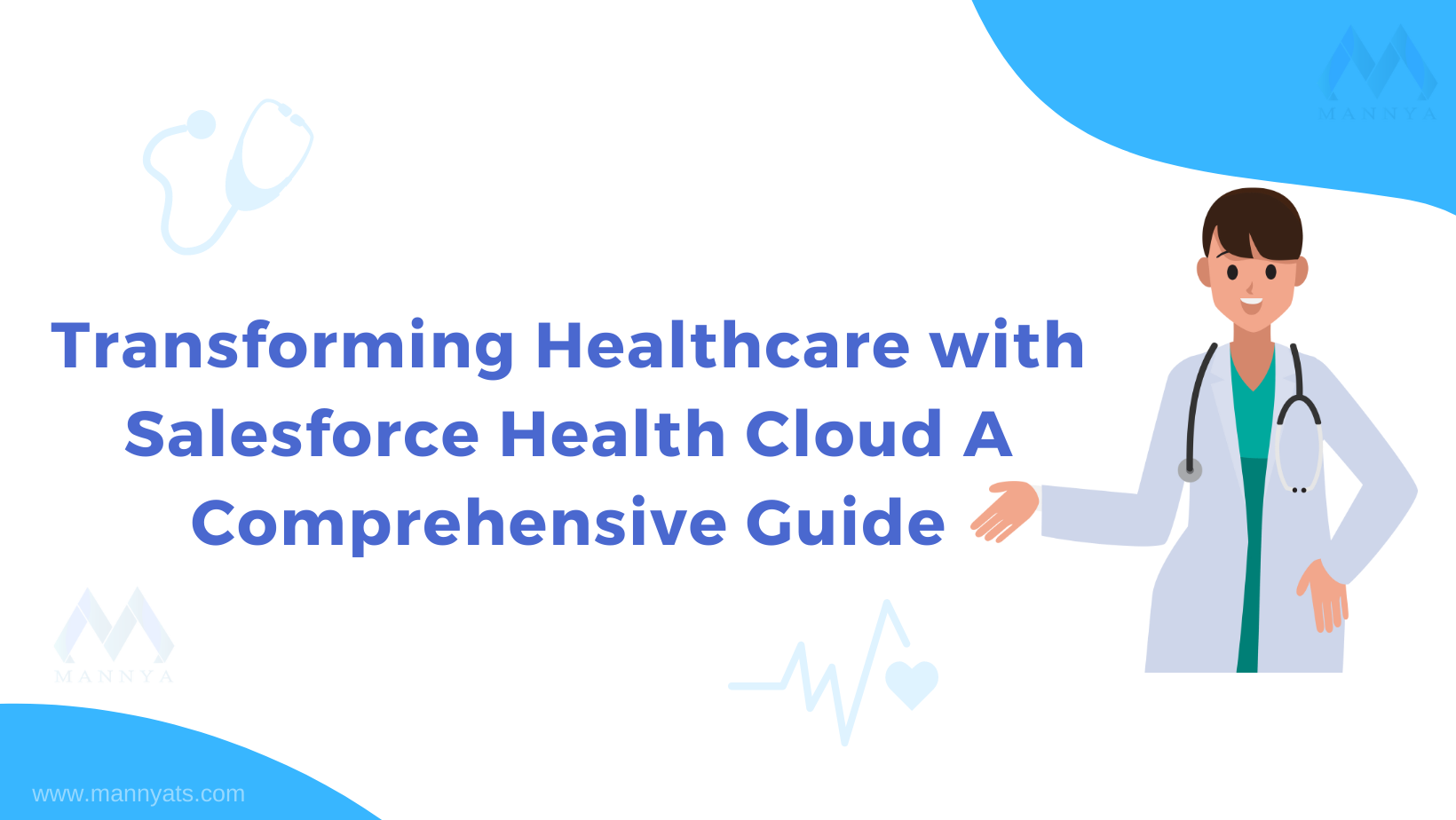Transforming Healthcare with Salesforce Health Cloud A Comprehensive Guide
In today’s digital age, the healthcare industry is facing increasing challenges in managing patient data, delivering personalized care, and improving patient engagement. Salesforce Health Cloud offers a comprehensive solution to address these pain points and revolutionize the healthcare sector. This article will explore what Health Cloud is, how it can be a game-changer in the industry, key features of Salesforce Health Cloud, adoption techniques, best practices, troubleshooting techniques, and conclude with the potential benefits it brings to the healthcare ecosystem.

What is Salesforce Health Cloud?
Salesforce Health Cloud is a powerful, patient-centric CRM platform specifically designed for the healthcare industry. It provides healthcare providers with a complete view of patient data, enabling personalized care, efficient coordination, and improved patient outcomes. Health Cloud empowers healthcare organizations to streamline operations, enhance patient engagement, and drive better health outcomes.
How Health Cloud Revolutionizes the Healthcare Industry:
- Patient-Centric Approach: Health Cloud enables a holistic view of patients’ health data, including medical history, care plans, medications, and social determinants of health. This comprehensive view allows healthcare providers to deliver personalized care and improve patient satisfaction.
- Care Coordination and Collaboration: Health Cloud facilitates seamless communication and collaboration among healthcare teams, ensuring care coordination, reducing errors, and improving the overall quality of care.
- Engagement and Empowerment: Health Cloud empowers patients to take an active role in managing their health through self-service portals, personalized communication, and access to educational resources. This leads to increased patient engagement and improved health outcomes.
Key Points of Salesforce Health Cloud:
- Unified Patient Profile: Health Cloud provides a 360-degree view of each patient, consolidating data from multiple sources into a single, comprehensive profile, enabling healthcare providers to make informed decisions.
- Care Plan Management: Health Cloud allows healthcare professionals to create and manage personalized care plans, ensuring consistency and collaboration across the care team.
- Integration and Interoperability: Health Cloud seamlessly integrates with electronic health records (EHRs) and other healthcare systems, enabling the exchange of data and fostering interoperability.
- Salesforce Ecosystem Integration: Health Cloud leverages the power of the broader Salesforce ecosystem, integrating with Salesforce Service Cloud, Marketing Cloud, and other Salesforce products for a unified healthcare experience.
Resolving Pain Points in the Healthcare Industry:
- Fragmented Patient Data: Health Cloud resolves the challenge of fragmented patient data by centralizing and organizing data in a single platform, providing a comprehensive view of each patient’s health journey.
- Lack of Care Coordination: Health Cloud promotes care coordination by facilitating communication and collaboration among care team members, streamlining workflows, and reducing administrative burdens.
- Limited Patient Engagement: Health Cloud empowers patients to actively participate in their care through personalized communication, self-service tools, and access to their health information, fostering engagement and better health management.
Adoption Techniques:
- Define Objectives: Clearly define your healthcare organization’s goals and objectives for implementing Health Cloud, such as improving patient satisfaction, optimizing care coordination, or enhancing data analytics.
- Data Migration and Integration: Ensure a smooth transition by planning and executing a data migration strategy, mapping data from existing systems to Health Cloud, and integrating with EHRs and other healthcare systems.
Best Practices for Salesforce Health Cloud Adoption:
- Engage Stakeholders: Involve key stakeholders, including healthcare providers, administrators, and IT teams, in the adoption process to ensure buy-in and collaboration.
- Training and Education: Provide comprehensive training to healthcare professionals and staff members on using Health Cloud effectively and maximizing its benefits.
Troubleshooting Techniques:
- User Support: Establish a dedicated support team to address user queries and issues promptly, ensuring a smooth user experience and adoption process.
- Continuous Improvement: Regularly review and assess Health Cloud usage, gather feedback from users, and identify areas for improvement to optimize its functionality within your healthcare organization.
In conclusion
Salesforce Health Cloud has the potential to transform the healthcare industry by placing patients at the center of care, enabling care coordination, and driving better health outcomes. By adopting Health Cloud, healthcare organizations can streamline operations, improve patient engagement, and deliver personalized care. Embrace Health Cloud, follow best practices, troubleshoot effectively, and unlock the full potential of Salesforce in revolutionizing healthcare delivery.
Why Mannya Techno Solutions?
Mannya Techno Solutions is a global IT services firm headquartered in Pleasanton, California and having offshore delivery center in India. Mannya has extensive experience and expertise in CRM, Cloud & Digital Solutions, Oracle and Mobility. We are an associated partner company with Salesforce, AWS, Oracle, and Google and have worked with many leading players in the Manufacturing, E-commerce, Digital, Healthcare, Education, Entertainment/OTT, Hi-Tech and Telecom domains. Mannya provides a portfolio of business and technology consulting services to fully unleash the cloud’s potential. Our competent and talented pool is extensively experienced in delivering vertical-specific solutions.
Share:
Recent Posts
- Optimize Your Salesforce Org With These 7 Critical Insights
- The Martech Revolution A Comprehensive Guide to Unleashing Marketing Technology’s Power
- Unlocking Integration Excellence: The Ultimate MuleSoft Guide for Seamlessly Transforming Middleware
- Salesforce Lightning Web Components (LWC) and Lightning (Aura) Components: A Lightning Transformation
- The Power of Chat GPT and Salesforce Integration A Comprehensive Technical Guide
